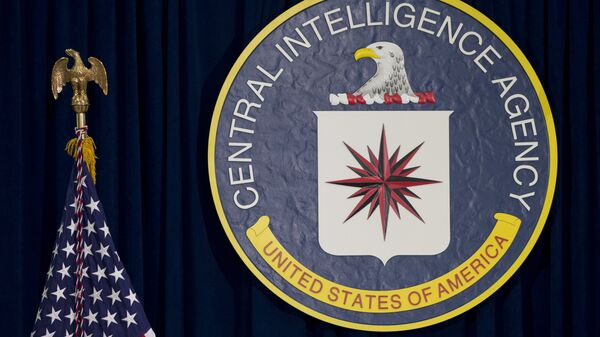Every time you post a message on Facebook or share a photo on Instagram, remember this: Big Brother is watching you. No, it's not a quotation from the famous "1984" by George Orwell. The truth of the matter is that the US Central Intelligence Agency has set its eye on social media platforms.
In his latest article US investigative journalist Lee Fang sheds some light of the CIA's investment programs, referring to a new document obtained by The Intercept.
It turns out that In-Q-Tel, the CIA's venture capital firm, is pouring money into companies and start-ups specializing in social media mining and surveillance.
"The investments appear to reflect the CIA's increasing focus on monitoring social media," Fang stresses.
The companies, which receive funding from In-Q-Tel, are developing unique tools to mine data from Twitter, Facebook and Instagram. The advanced applications help to collect, sort and visualize data, spotting trends in real time.
For instance, "Geofeedia specializes in collecting geotagged social media messages, from platforms such as Twitter and Instagram, to monitor breaking news events in real time. The company, which counts dozens of local law enforcement agencies as clients, markets its ability to track activist protests on behalf of both corporate interests and police departments," Fang narrates.
The company's website message reads:
"Hundreds of customer experience, education, public sector and security teams rely on the Geofeedia platform to listen to and engage with social media content from locations across countries, cities, buildings and everything in between from Twitter, Instagram, YouTube, Picasa, Flickr, VK, Sina Weibo and other social channels."
Fang reveals that for the last ten years In-Q-Tel has been engaged with companies specializing in scanning large sets of online data.
The investigative journalist cites Bruce Lund, a senior member of In-Q-Tel's technical staff, who wrote in his 2012 report that keeping an eye on social media is increasingly essential for government agencies.
"Governments are increasingly finding that monitoring social media is an essential component in keeping track of erupting political movements, crises, epidemics, and disasters, not to mention general global trends," the report states.
Remarkably, American high-tech companies and even Silicon Valley giants have a long record of cooperation with US government agencies.
In his March Op-Ed for Russia Today Neil Clark, a journalist, writer and broadcaster, called attention to the fact that Google experts had a role in managing the Syrian "regime change" project back in 2011-2012. He quoted a series of emails by then president of 'Google Ideas' (now called 'Jigsaw') Jared Cohen to former Secretary of State Hillary Clinton, recently exposed by WikiLeaks.
"Please keep close hold, but my team is planning to launch a tool on Sunday that will publicly track and map the defections in Syria and which parts of the government they are coming from," Cohen wrote on July 25, 2012.
Information technologies play a crucial role in today's world. However, the question then arises to what extent these technologies, tools and applications can be used. What is at stake are fundamental values — privacy, freedom of speech, nations' sovereignty and independence.





